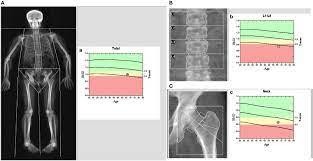When a brain-injured patient responds to nail bed pressure with internal rotation, adduction, and flexion of the arms, how should the nurse report the response?
Localization of pain
Decorticate posturing
Decerebrate posturing
Flexion withdrawal
The Correct Answer is B
Choice A rationale: Localization of pain refers to the ability of an individual to pinpoint the exact location of pain, which is different from the described response.
Choice B rationale: Decorticate posturing involves the arms flexing inward toward the body, which is consistent with the observed response to nail bed pressure.
Choice C rationale: Decerebrate posturing involves extension and outward rotation of the arms, which is different from the described response.
Choice D rationale: Flexion withdrawal typically involves pulling away from a painful stimulus, which differs from the specific response observed in the scenario.
Nursing Test Bank
Naxlex Comprehensive Predictor Exams
Related Questions
Correct Answer is D
Explanation
Choice A rationale: Symptoms and findings described align more with an acute, severe condition rather than a chronic one.
Choice B rationale: While cholecystitis can present with similar symptoms, the radiation of pain to the back is more indicative of a different condition.
Choice C rationale: Cholelithiasis (gallstones) might cause abdominal pain but typically doesn’t lead to fever and hypotension.
Choice D rationale: Symptoms including severe abdominal pain, radiation to the back, fever, and hypotension suggest acute pancreatitis, a potentially serious condition requiring urgent medical attention.
Correct Answer is B
Explanation
Choice A rationale: This test is not specific for confirming osteoporosis.
Choice B rationale: This test is called a bone mineral density (BMD) test or a dual-energy X-ray absorptiometry (DXA) scan. It measures how much calcium and other minerals are in a segment of bone.
Choice C rationale: This test is not specific for confirming osteoporosis.
Choice D rationale: This test is not specific for confirming osteoporosis.

Whether you are a student looking to ace your exams or a practicing nurse seeking to enhance your expertise , our nursing education contents will empower you with the confidence and competence to make a difference in the lives of patients and become a respected leader in the healthcare field.
Visit Naxlex, invest in your future and unlock endless possibilities with our unparalleled nursing education contents today
Report Wrong Answer on the Current Question
Do you disagree with the answer? If yes, what is your expected answer? Explain.
Kindly be descriptive with the issue you are facing.
